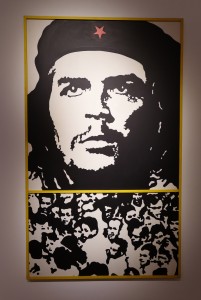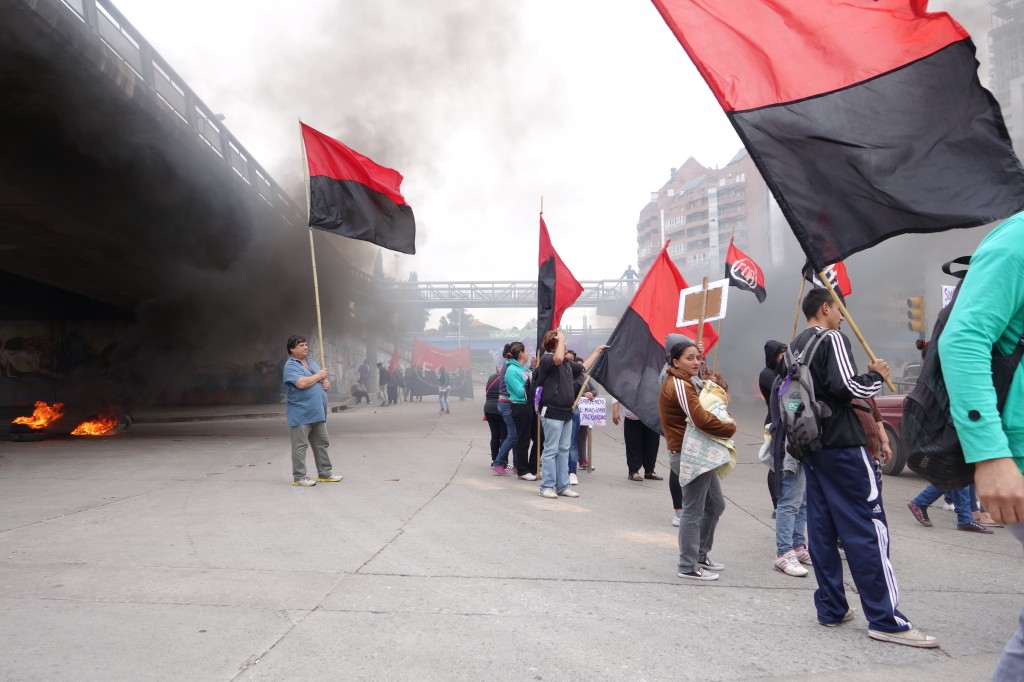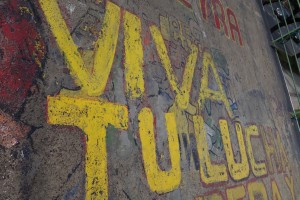For those millennial children of Generation Y who, like me, spent their childhoods playing on smooth American asphalt, and learning in school that on those same boulevards resided civilization’s perfection, the concept of revolution has been a term reserved for catchy Beatles songs and history lessons about our ancestors fighting British "red-coats" in a time far far away. Since those years there have a been a few exceptions - the “Battle of Seattle” in 1999, the Occupy Movement in 2009, Ferguson, Missouri now – and I speak only from experience…but speaking from experience, I have experienced more espíritu revolucionario in Buenos Aires in 3 months than I have in the U.S. in 21 years.
You see it in the labor protests that shut down public transportation, and in the "mothers of Plaza de Mayo", who gather every week to protest the violent military dictatorship that ruled Argentina between 1976 and 1983, and are responsible for the "disappearance" of their children. You hear it in the “che” with which locals address one another with - a direct reference to Ernesto “Che” Guevarra, who was born in the near bye town of Rosario, fought in socialist movements in Cuba, Bolivia, and the Congo, and is now a recognized symbol for revolution across the world.
 |
| Ernesto "Che" Guevara |
You acknowledge it in the anti-government rants that Argentines will slip into conversation while telling you about their day. I see it in painted across city - in large red and yellow letters scrawled across the bridge that I walk over every day on my way to school which read “viva tu lucha”, or “live your fight”. You can smell it in the burning tires.
Without a doubt, the palpable spirit of protest here seems to be a result of a well-warranted and long-standing discontent over government shortcomings. Along with rampant corruption, there has also been a failure to revive the country from the profound economic slide that it has been experiencing since its’ financial crisis of 2002, in which the country defaulted on all foreign debt (which they did again just three months ago). Whatever or whomever is to blame, Argentina continues to slide into deeper poverty, inequality, and insecurity, and the people can feel it. The people want change.
 |
| Protests on the street |
I like to think that through travel and studying abroad one can learn not only about another country, but also gain a new perspective on their own. On that note, I’d like to finish this post by taking it home. Since the Civil Rights and Anti-War marches of the 60s, revolutionary spirit in America has withered. Protest has lost its touch. Despite identified problems, the perceived power to change things through citizen action seems to be slipping away. People have become too content.
Argentina may be decades away from achieving the levels of political and economic stability that we enjoy today in the United States, but when that day does come, I hope Argentines remain revolutionaries. I hope they don’t settle. I hope we as Americans have the wisdom to become discontent; I hope we don’t settle. I hope Ferguson can be a wake up call. I hope we dust off the tool of collective action and put it back to work. We’re a beautiful country, but our democracy is not perfect and that asphalt does have cracks.
 |
| Viva tu lucha |
Che said, “the basic clay of our work is the youth.” I hope we can create something.
Mathew Cerf a CEA blogger in Buenos Aires. He is currently a junior at the University of San Diego.










